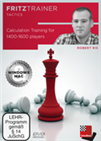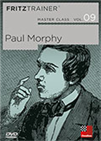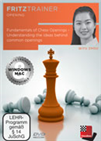John Jacob Loewenthal (July 15, 1810 – July 24, 1876)
 Loewenthal was born in Pest, Hungary, on July 15, traditionally believed to be in 1810, but most likely 1806. His father was said to be a merchant. Despite the family being Jewish, the young Johann, or Janos, was sent to a Catholic school of the Piarist fathers.
Loewenthal was born in Pest, Hungary, on July 15, traditionally believed to be in 1810, but most likely 1806. His father was said to be a merchant. Despite the family being Jewish, the young Johann, or Janos, was sent to a Catholic school of the Piarist fathers.
Josef Szen, then Hungary's strongest player, had gone to the same school, but it is not known whether he and Loewenthal became friends there. By 1836, however, they were playing each other at the Café Europa, Pest's most popular chess haunt. Szen recalls in his memoirs that Loewenthal, "at a comparatively late period of life, had commenced a serious study of chess." Szen gave Loewenthal large odds, but within a year, they were playing even. Szen regarded Loewenthal high enough to invite him to be his assistant in a correspondence match against Paris in 1842. Pest won, 2-0. In 1846, Loewenthal toured Vienna and won a match against Carl Hamppe.
In 1848, Loewenthal joined the Hungarian nationalist democratic revolution of Lajos Kossuth, and served in the civil administration of a provisional parliamentary government. The revolution, however, was crushed in late 1849 and Loewenthal fled to Germany. From Hamburg, he sailed for America and arrived in New York City in December 1849.
 Mastering these tactical motifs is essential to deepen your understanding of the game and become a better player. After all, you neither want to overlook the given chances by your opponent, nor blunder yourself!
Mastering these tactical motifs is essential to deepen your understanding of the game and become a better player. After all, you neither want to overlook the given chances by your opponent, nor blunder yourself!Loewenthal had very little savings when he arrived in America. He had no intention of turning professional there, as he had not been one back in Europe. Fortunately, he came to know Charles Henry Stanley, the editor of a chess column in The Albion. Stanley introduced Loewenthal to New York's chess circle, which embraced him eagerly. He went on a tour of the United States, and it was on a brief stop in New Orleans that he lost two games to the 12-year-old Morphy. He settled in Cincinnati, where he opened his own Cigar Divan (chess parlour) out of local support. In 1851, his friends raised funds to send him to the first international tournament in London. However, he was eliminated in the first round by Elijah Williams. Now too embarrassed to face his backers in Cincinnati, he remained in England for good.
There were, of course, other reasons for staying in England. This allowed him, most importantly, to test himself against the strongest masters of Europe. Between 1851-1854, he played matches against Howard Staunton, Adolf Anderssen, and Lionel Kieseritzky. Lowenthal, with his strength and amiability, particularly impressed Staunton both as a player and a man. As the world's leading player next to Anderssen and a very prominent journalist, Staunton became a powerful benefactor.
For several years after he came to England, Loewenthal became Staunton's protégé. He assisted Staunton in the analysis of games and problems in his columns, while Staunton helped arrange employment for him. In 1853, Staunton commissioned Loewenthal to tour clubs in the English provinces for a series of articles in the Chronicle. Through Staunton's influence, Loewenthal also became the secretary of the St. George Club in 1854, and, shortly after, a writer of the "Era."

In 1853, Staunton arranged a match for Loewenthal with Daniel Harrwitz, a German immigrant who was one of the elite players of the time. In his reminisces, Augustus Mongredien recalled Harrwitz:
A player of first-rate strength, although not equal to either Anderssen or Morphy. He had the misfortune of being both contentious and witty — the former quality involving him into constant disputes, and the latter rendering those disputes bitter and personal. I got on very well with him myself, probably because he beat me. It was chiefly those whom he could not beat that he hated. With Staunton, his feud was deadly.
Before, Staunton attempted but failed to arrange a match with Harrwitz, and given his dispute with him, Loewenthal was likely to play in his stead. The match was intense and gruelling, especially that Staunton antagonized Harrwitz even before the match began. Harrwitz, he wrote, was a professional who relied solely on playing for stakes to earn his income. Loewenthal, on the other hand, was a gentleman who kept "the game subordinate to the duties in life."
 The name Emanuel Lasker will always be linked with his incredible 27 years reign on the throne of world chess. In 1894, at the age of 25, he had already won the world title from Wilhelm Steinitz and his record number of years on the throne did not end till 1921 when Lasker had to accept the superiority of Jose Raul Capablanca. But not only had the only German world champion so far seen off all challengers for many years, he had also won the greatest tournaments of his age, sometimes with an enormous lead. The fascinating question is, how did he manage that?
The name Emanuel Lasker will always be linked with his incredible 27 years reign on the throne of world chess. In 1894, at the age of 25, he had already won the world title from Wilhelm Steinitz and his record number of years on the throne did not end till 1921 when Lasker had to accept the superiority of Jose Raul Capablanca. But not only had the only German world champion so far seen off all challengers for many years, he had also won the greatest tournaments of his age, sometimes with an enormous lead. The fascinating question is, how did he manage that?The match was a race to eleven wins. Harrwitz won the first two games, but Loewenthal scored five in a row. Staunton gloated in the Illustrated:
The Hungarian has completely outdistanced his opponent. In the last five sittings he has actually won every game, and won them with a facility which shows incontestably his superiority in depth and power of combination.
Harrwitz called for a break, but he had to receive a two-game penalty based on a rule he himself had insisted on. This left the score at 7-2, and after resumption Loewenthal won two more to lead 9-2. Things, then, took a turn similar to that in the first Kasparov-Karpov world championship match. The trailing player dug deep, and thereafter his opponent would find his resistance too tough and unbreakable. Harrwitz whittled the lead and came within a point at 9-8. Loewenthal won a game but could not nail his final point. At 10-8, Harrwitz rallied for three wins to take the match, 11-10.

Daniel Harrwitz
Staunton had to acknowledge Harrwitz's victory, but did not dismiss his protégé. He concluded that Loewenthal was the finer, more learned, and more finished player," but Harrwitz was "the surer, the readier, and by much the more courageous one."
Loewenthal dedicated himself fully to chess, and journalism became another major pursuit. In addition to writing for the Era, he also wrote columns for several other publications, including the Family Friend, the Family Herald, Illustrated News of the World, the Dial, the Glowworm, the Weekly Dispatch, Young Men of Great Britain, Land and Water, and the London Figaro.
Loewenthal's loss to Harrwitz did not dent his relationship with Staunton, but it fell out sometime between 1857 and 1858. Staunton had supposedly disclosed in his column that he enjoyed a huge lead over Loewenthal in a series of consultation matches. After being challenged publicly, he asked Loewenthal to confirm the score in writing. Loewenthal refused, thinking the match was closer. Slighted, Staunton broke off with Loewenthal. So disappointed was he by what he perceived as Loewenthal's ungratefulness that he utilized his influence to ease him out of his writing commitments and paid positions in chess clubs.
Loewenthal, thereafter, had to make it on his own without Staunton, and he was immediately tested in Manchester 1857. This was a one-round knockout event that was unexpectedly scheduled as an undercard to a highly publicized exhibition match between the team of Anderssen, Bernhard Horwitz, and Josef Kling, and that of Staunton, Samuel Boden, and James Kipping.
Loewenthal eliminated Horwitz in the first round, then Anderssen in the second. In the finals, he drew the first game with Boden, but Boden then had to forfeit the second game due to an engagement in London. Loewenthal received a set of ivory chess pieces from China as first prize, which he proudly displayed in London.

In 1858, Loewenthal became the first European to face Paul Morphy, now a grown man determined to prove his strength to the world. Loewenthal knew the odds, but he was optimistic his improvements in the last nine years since they played in New Orleans would give him a fighting chance. Morphy, however, left no doubt about his superiority and took the match, 10-3.

Paul Morphy versus John Jacob Loewenthal
Far from disheartening him, the match with Morphy whipped Loewenthal into top form for his next great event — the Birmingham tournament of 1858.
 Learn about one of the greatest geniuses in the history of chess! Paul Morphy's career (1837-1884) lasted only a few years and yet he managed to defeat the best chess players of his time.
Learn about one of the greatest geniuses in the history of chess! Paul Morphy's career (1837-1884) lasted only a few years and yet he managed to defeat the best chess players of his time.Unlike the tournament in Manchester the previous year, the matches in Birmingham were of two instead of a single game. Loewenthal beat Kipping, 2-0, Staunton, 2-0, and Owen, 2½-½ in succession to set up an encounter with Ernst Falkbeer in the finals.
Hardly one was favoured between the two finalists. George Macdonnell assessed the formidable master and creator of the popular defence against the King's Gambit:
Falkbeer was a very rapid player, original, daring, and imaginative. He could be sound when he liked, but he did not court soundness. He delighted to be fireworky, and courted above all things the admiration of the spectators. As an analyst he occupied a high position.
The final was a race to three wins. Falkbeer proved tougher than Loewenthal's three previous opponents. After eight games, however, Loewenthal notched his third win to take the match, 3-1, and score the success of his life.

Loewenthal may have found his victory over Staunton in the second round more significant than his finals defeat of Falkbeer. Their first game, in particular, lasted over twelve hours, played over two days. It was certainly satisfying to prove himself more than a match for Staunton, whom he must have held as his superior both in and beyond chess. Still, it must have been with some regret that he broke Staunton, for he had gained so much from him after all. His former benefactor would never again post a good result in a significant event.
Loewenthal was serving as the secretary of the British Chess Association (BCA) in 1862 when he organized a major event in London. The tournament utilized the round-robin format for the first time, which would soon replace the traditional knock-out system. London 1862 also saw the debut of Wilhelm Steinitz.
Aside from entering the event, Loewenthal supervised a problem-solving competition and wrote the tournament book. Alas, all these were too taxing. He achieved a perfect four-point score in four rounds on wins over Thomas Barnes, Valentine Green, and Mongredien and one forfeit. However, he was forced to withdraw due to extreme exhaustion.
London 1862 marked the end of Loewenthal's competitive career, but he continued to serve English chess as an officer of the BCA. In 1866, he organized the BCA Challenge Cup, which was won by Cecil De Vere, who thus became the first British Champion.
Loewenthal was highly respected for his work. However, he raised controversy when he used his position to modify the English chess rules that had been established by Staunton in 1860. He proposed that a player need not be obliged to change a promoted pawn into a piece. The strange idea, of course, was met with an uproar.
Fortunately, this indiscretion did not affect Loewenthal's position as an outstanding administrator of British chess. No foreign master had held so many significant offices in chess clubs and national organizations. In 1866, his full integration into English chess was formalized when he was granted British citizenship.
 Starting out in chess is difficult, and this DVD aims to reduce that stress. Designed for beginner levels in openings, a brief introduction to the reasons we play some of the most common moves in popular openings like the Spanish and Sicilian is given.
Starting out in chess is difficult, and this DVD aims to reduce that stress. Designed for beginner levels in openings, a brief introduction to the reasons we play some of the most common moves in popular openings like the Spanish and Sicilian is given.Loewenthal's love for chess and his adopted country was reciprocated when, in 1864 and 1874, special funds were collected to augment his earnings. Four years before his death, he made up and renewed his friendship with Staunton, which he may have appreciated more than the financial grants he received. He remained a bachelor, and from 1851-1876 he dedicated his entire life to chess.
Loewenthal passed away on July 24, 1876. Even in death, he had the interests of chess at heart. He left his modest estate as a trust fund to promote chess in England. This only amounted to 274 pounds, but the St. George Chess Club used it to purchase a silver cup which was used from 1922 on as a prize for inter-county championships.
Loewenthal was an exceptionally strong player, as he proved in Manchester 1857 and Birmingham 1858. However, his poor nerves and stamina, which became evident in his match against Harrwitz, may have prevented him from fulfilling his potential. He was amiable almost to a fault, and Charles Ranken recalled that his weakness was "to try to please everybody." He was highly praised at the time of his death, and fondly recalled by many of his contemporaries. With his writings and a full life devoted to promoting chess, he indeed left a lasting mark.
References
- Harding, Tim. Eminent Victorian Chess Players: Ten Biographies. North Carolina: McFarland & Company, Inc., Publishers, 2012.
- Hartston, William. The Kings of Chess. New York: Harper & Row, Publishers, 1985.
- www.chessgames.com. Johann Jacob Loewenthal.
- Wikipedia. 2023. “Johann Jacob Lowenthal”. Last modified May 28, 2023.
Games
The following notable games are presented in the dynamic replayer below. To switch between games, select an entry from the list.
- Loewenthal vs. Szen, 1842 - One of Loewenthal’s earliest games in his home country. Loewenthal catches Hungary’s strongest player in an irresistible attack.
- Loewenthal vs. Harrwitz, 1853 - Loewenthal’s first victory of ten against Harrwitz in their 1853 match. Harwitz falls into a clever mating net.
- Horwitz vs. Loewenthal, 1857 – Loewenthal’s first round defeat of Horwitz in Manchester 1857. Loewenthal converts his superior piece and coordination advantage into a material plus, which he converts in the endgame.
- Loewenthal vs. Morphy, 1858 - Loewenthal’s finest game of the match. Loewenthal exploits his positional and material advantage with precise play.
- Loewenthal vs. Falkbeer, 1858 – Loewenthal conducts a brilliant attack in one of his three victories against Falkbeer in the finals of Birmingham 1858.
Links


















 Loewenthal was born in Pest, Hungary, on July 15, traditionally believed to be in 1810, but most likely 1806. His father was said to be a merchant. Despite the family being Jewish, the young Johann, or Janos, was sent to a Catholic school of the Piarist fathers.
Loewenthal was born in Pest, Hungary, on July 15, traditionally believed to be in 1810, but most likely 1806. His father was said to be a merchant. Despite the family being Jewish, the young Johann, or Janos, was sent to a Catholic school of the Piarist fathers.




